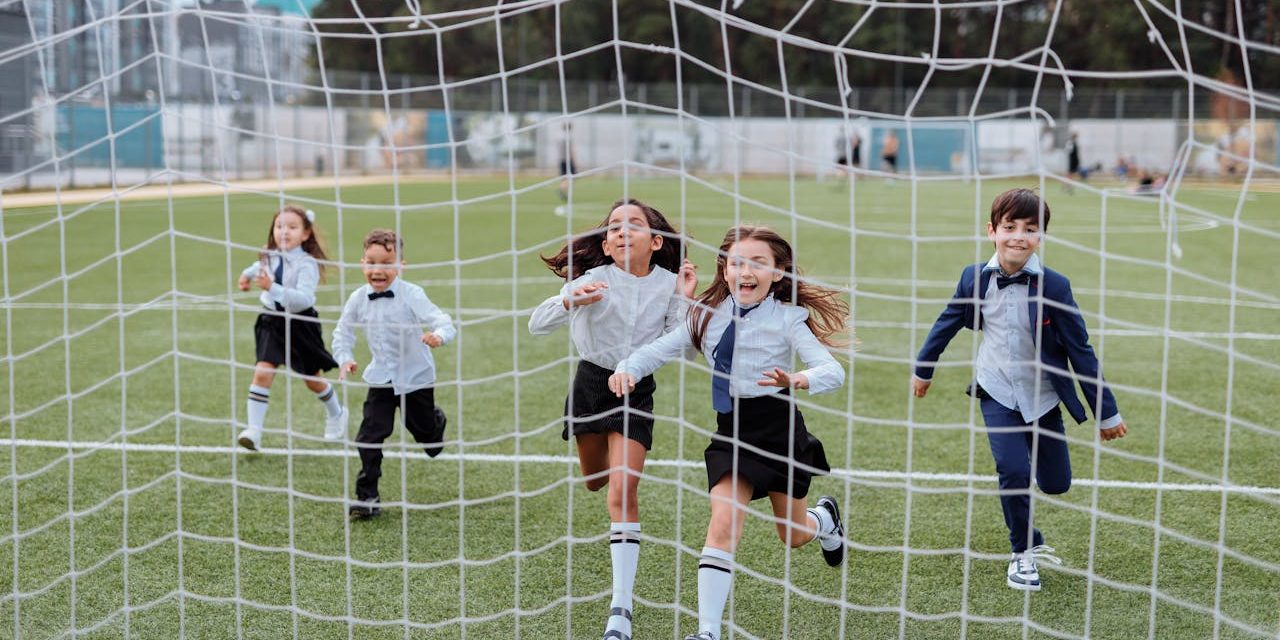Having trouble getting your child active? Discover simple ways to spark a love for sports that boosts confidence and resilience, bringing fun to your family.
Estimated reading time: 5 minutes
In today’s digital age, instilling a love for sports in children is crucial for their physical and mental well-being. As parents, you play a pivotal role in shaping our children’s attitudes towards physical activity. This article explores practical strategies for nurturing a passion for sports, potentially leading to a lifelong commitment to fitness.
Inspiring Family Fitness Through Parental Leadership
Children often imitate their parents’ behaviors, making you their first and most important role model. Your actions will inspire them to embrace physical activity in their daily life. To encourage an active lifestyle:
Participate in Sports Yourself
Consider investing in a personalized team uniform to elevate the excitement of family participation. This can help create a sense of belonging and unity among family members.
Make Sports a Family Affair
To incorporate sports into family time, participate in activities together. This could include watching games, planning active outings like hiking or cycling, and attending local sporting events.
Show Genuine Enthusiasm
Show authentic support by actively participating in your child’s sports activities, whether attending games or cheering them on. Your encouragement and interest in their progress can boost their confidence and motivation. Being involved helps them feel valued and reinforces the importance of effort and enjoyment.
Fun Fact
Research shows that children of active parents are 5.8 times more likely to be active than those of inactive parents. Lead by example to inspire your child’s love for sports.
Exploring Athletic Pursuits to Ignite Passion
Every child is unique, with different interests and abilities. Broadening their sporting horizons increases the likelihood of finding one that resonates:
- Balance team and individual sports: Introduce a mix of activities like soccer, basketball, tennis, and swimming.
- Explore less conventional options: Consider activities like rock climbing, Ultimate Frisbee, or archery to provide unique challenges and experiences.
- Utilize multi-sport camps: These offer exposure to various sports in a fun, engaging environment during school breaks.
Remember, the early stages should focus on participation and having fun rather than competing to win. Encouraging enjoyment helps maintain interest and prevent burnout, laying a foundation for long-term engagement.
Nurturing Growth and Resilience Through Support
The environment around sports plays a crucial role in shaping long-term participation. A positive, supportive atmosphere encourages children to stay motivated and pursue their interests. Creating a space where effort is valued over outcomes helps build resilience and enjoyment.
- Emphasize effort over outcomes: Praise hard work and dedication, not just achievements.
- Set realistic goals: Help your child establish achievable objectives to foster a sense of accomplishment.
- Manage emotions: Your reactions during games or practices can impact your child’s experience. Stay positive and supportive.
- Encourage learning from mistakes: Frame errors as opportunities for growth and improvement.
- Foster a growth mindset: Help your child understand that abilities can be developed through dedication and practice.
- Respect autonomy: Support their decisions to try new sports or take breaks without pressure.
Implementing these strategies can help young athletes develop a lifelong love for sports and physical activity. You’re not just creating great athletes; you’re also nurturing well-rounded individuals who carry teamwork, perseverance, and self-improvement lessons into their lives.

Fueling Lifelong Dedication to Sports
Sports offer more than physical fitness; they teach valuable life skills like cooperation, commitment, and tenacity. These lessons help children succeed in different areas, from academics to personal relationships. Here are some well-rounded approaches to sports that can build confidence and resilience that last a lifetime:
- Promote teamwork and camaraderie: Encourage participation in team-building activities and events.
- Highlight holistic benefits: Explain how sports contribute to overall well-being, including mental health and social skills.
- Explore different roles: Not every child will be a star athlete. Encourage exploration of roles like coaching, refereeing, or sports management.
- Connect sports to life skills: Draw parallels between sports lessons and real-life situations, such as perseverance, goal-setting, and time management.
Tailoring Approaches to Unique Athletic Needs
Every child’s journey in sports is unique, with different interests, strengths, and challenges. It’s essential to support their individual pace and preferences while encouraging exploration. By doing so, you’re helping them find activities they genuinely enjoy and can commit to long-term.
- Accommodate different personality types: Some children thrive in competitive environments, while others prefer cooperative activities.
- Consider physical attributes: Help your child find sports that align with their natural abilities while encouraging them to challenge themselves.
- Address potential barriers: Work with your child to overcome obstacles, whether physical limitations, social anxieties, or time constraints.
- Stay open to change: Be prepared to adapt your approach as your child grows and their interests evolve.
“The most important thing is to try and inspire people so that they can be great in whatever they want to do.” Kobe Bryant, NBA Legend
Apply this philosophy to your child’s sporting journey, focusing on inspiration, enjoyment, and personal growth.
Laying the Foundation for an Active Future
Fostering a love for sports in children requires patience, dedication, and positivity. By leading by example, exposing kids to various activities, and creating a supportive environment, we can nurture a lifelong commitment to fitness and well-being. The aim is not to develop professional athletes but to help children discover the joy of movement and personal growth through sports.
Embarking on this journey as a family can lead to a more active, healthy, and fun-filled life. Sports’ benefits extend beyond the playing field, setting children up for success in various aspects of their lives. So, start today by engaging in physical activities together and watch your children develop positive associations with an active lifestyle.







